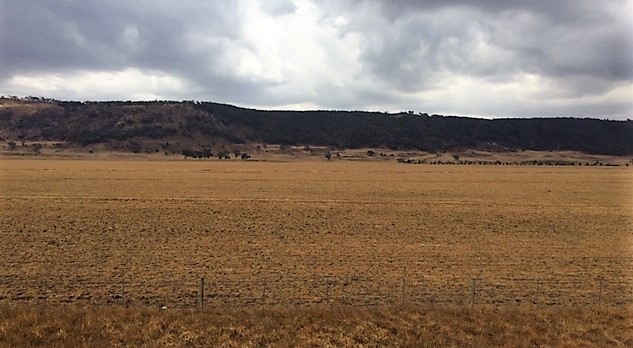An Australian judge used the unusual word ‘skerrick’ recently, which means “a small piece or quantity” – as in “the absence of a skerrick of evidence to the contrary”.[1]
The word is said to have originated in Great Britain in the early 1820s as a slang term for halfpenny.[2]
Nowadays it is said to be used mostly in Australia and New Zealand.
In court judgments, it is generally used in its negative sense, and perhaps with a tone of exasperation or disapproval, often about evidence, as in “not a skerrick of evidence was filed”.
Australia
In Australia, it is used in all courts, save the High Court. In fact, it is so often used, and in that negative sense that it is becoming a term of judicial art.
The word itself appears over 750 times in Australian court judgments. “Skerrick of evidence” appears over 500 times.
Some uses in its positive sense are found, for example that
“the researcher’s response was at least a skerrick of evidence upon which the Tribunal drew the inference”.[3]
And a judge colourfully described a policeman’s evidence as being
“a combination of a skerrick of memory, a degree of reconstruction and a fallback position of relying on his usual practice at that time”.[4]
The High Court of Australia has not quite used the word, except in quoting the Full Federal Court’s finding that there was “not a skerrick of evidence” about a person being warned about the consequences of further offending in terms of his migration status. [5]
However the High Court has explained that, in the context of s 501CA of the Migration Act 1958, the Minister’s reliance on “no evidence” to make a decision about a person’s visa status has traditionally meant “not a skerrick of evidence”,[6] giving the word some higher judicial respectability.
New Zealand
While it is said that the word also has usage in New Zealand, its use in NZ courts is limited, and in the Supreme Court, not at all.
Two NZ cases are noted.
While the word might be said to impute enough of a negative sense when used that way, one NZ court went further, finding that
“no skerrick of a question of law could be sighted this side of the horizon”.[7]

Another NZ case, in defamation, was more interesting for reasons other than the use by a witness of the word skerrick. The Court explained that when Lord Lucan
“disappeared on 8 November 1974 on the night his children’s nanny was murdered, he could never have contemplated that, 33 years later, two neighbours in a quiet suburb of Bonnie Glenn in rural Rangitikei would become embroiled in a defamation case which touched upon the belief of one neighbour that the other was in fact the British peer”.
Lucan was legally declared dead in 1999 so that
“his apparent presence in rural Rangitikei would have been bound to attract considerable interest”.

As neighbours, Ms Harris and Mr Woodgate had “not had an amicable or tranquil relationship”, more so when Ms Harris claimed that Mr Woodgate was in fact Lord Lucan, that she
“saw a photo of [Lucan] in a magazine. It was obvious. He hadn’t changed a skerrick in 33 years. He’s definitely Lord Lucan. Somebody needs to be told”.[8]
Hence the defamation claim.
England
In England, where the word seems to have originated, the word does not appear in any court judgments at all.
Skerrick … s k e r r i c k.
![]()
========================================================
[1] The Official Trustee in Bankruptcy v Shaw (No 4) [2024] FCA 1345 (12 November 2024)
[2] Word of the Day – skerrick | Dictionary.com
[3] BMT19 v Minister for Immigration, Citizenship, Migrant Services and Multicultural Affairs [2022] FCA 328 (5 April 2022)
[4] COSENZA v STATE OF SOUTH AUSTRALIA [2024] SASC 97 (7 August 2024)
[5] v Minister for Immigration, Citizenship and Multicultural Affairs [2024] HCASJ 87 (25 November 2024)
[6] Referring to Australian Retailers Association v Reserve Bank of Australia [2005] FCA 1707; (2005) 148 FCR 446 at 587 [575] per Weinberg J, quoting Aronson, Dyer and Groves, Judicial Review of Administrative Action, 3rd ed (2004) at 239.
[7] Ebert Construction (Taranaki) Limited v New Plymouth District Council CA292/97 [1998] NZCA 234 (30 September 1998)
[8] Woodgate v Harris HC Auckland CIV-2011-454-000198 [2011] NZHC 704; [2011] NZAR 787 (12 July 2011)



